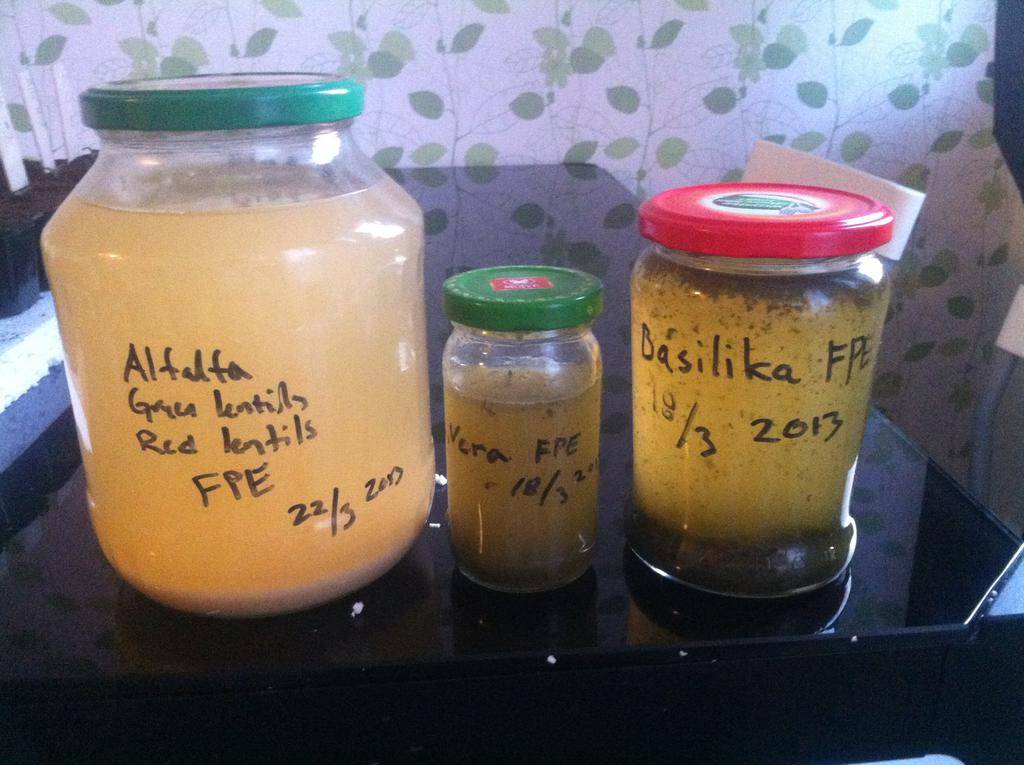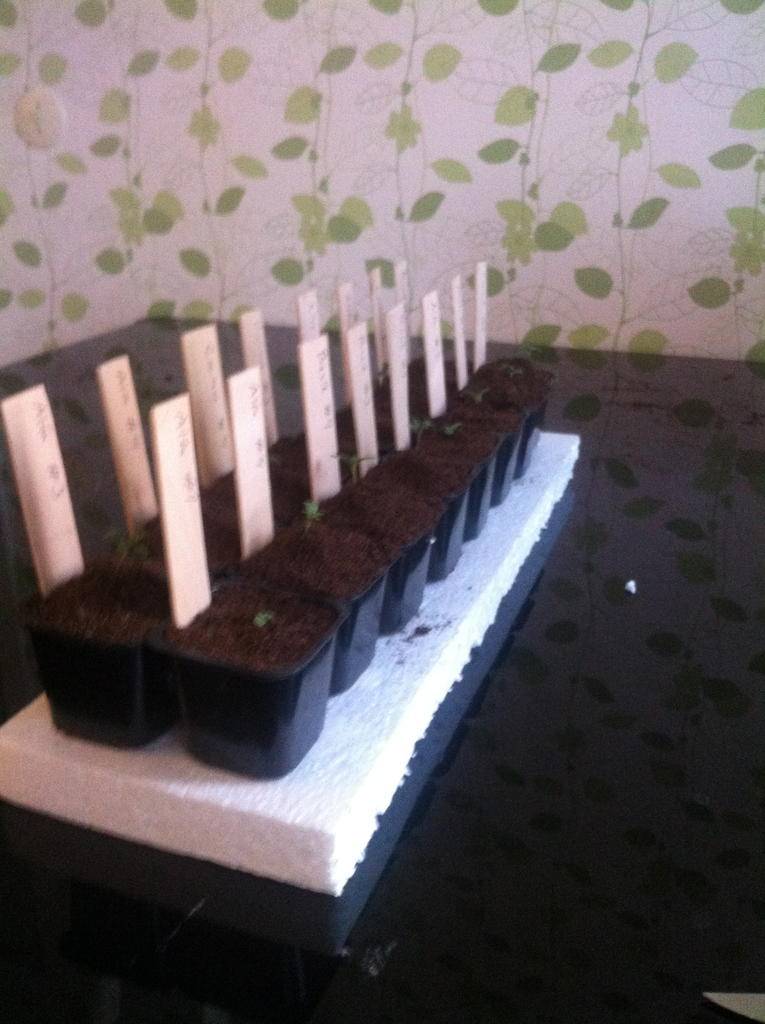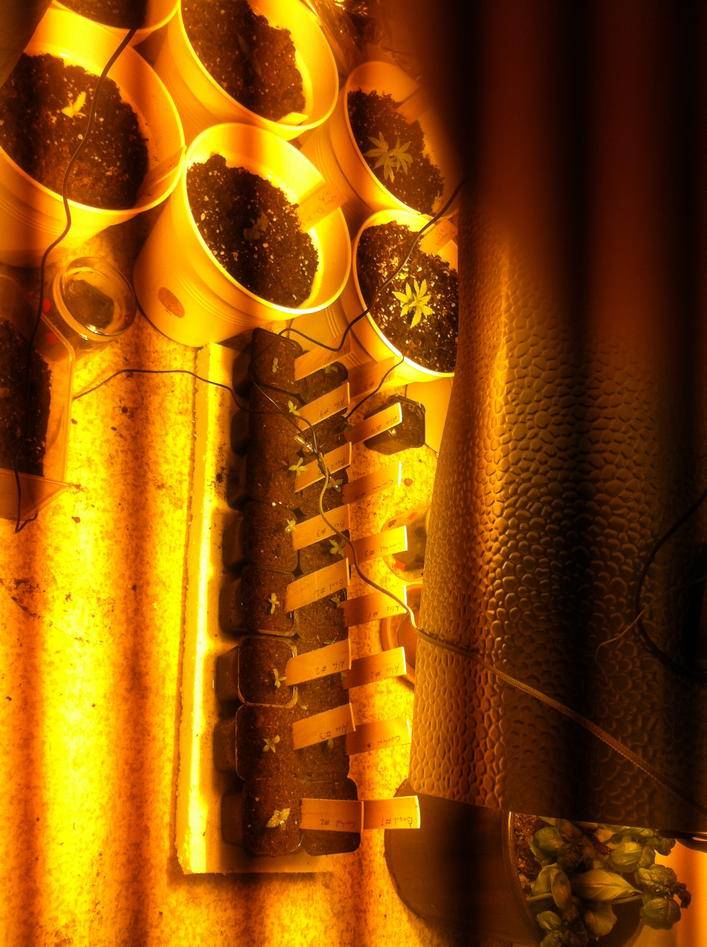ziggestardust
Member
After brewing some fermented plant extracts it is time to test them out.

The test subjects are 16 random bagseed-seedlings. Randomly placed in four groups of four.
The four groups:
The subjects are randomly placed on a styrofoam sheet.

The subjects are placed under a 400W HPS and will be weighted wet as soon as I get a scale (old one broken :S).
They are planted in cheap potting soil and, until transplanted, will receive only the assigned serum. After transplanting to final pots in organic soil they will be given homebrewn fish hydrolysate and some other goodies.

The final soil will probably be Ganokalong complete mix, if I dont get around creating my own mix anytime soon.
Lets get ready to RUMBLEEEEE!!!!

The test subjects are 16 random bagseed-seedlings. Randomly placed in four groups of four.
The four groups:
- Control
- Fermented Aloe Vera extract
- Fermented Basil Extract
- Fermented Alfalfa Sprout Extract (with small amounts of lentils)
The subjects are randomly placed on a styrofoam sheet.
The subjects are placed under a 400W HPS and will be weighted wet as soon as I get a scale (old one broken :S).
They are planted in cheap potting soil and, until transplanted, will receive only the assigned serum. After transplanting to final pots in organic soil they will be given homebrewn fish hydrolysate and some other goodies.
The final soil will probably be Ganokalong complete mix, if I dont get around creating my own mix anytime soon.
Lets get ready to RUMBLEEEEE!!!!



